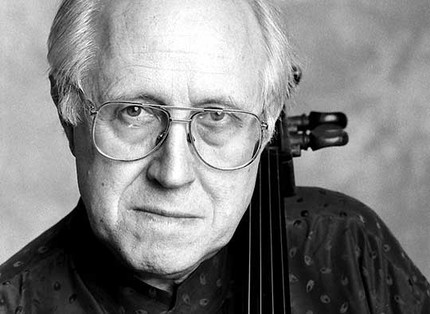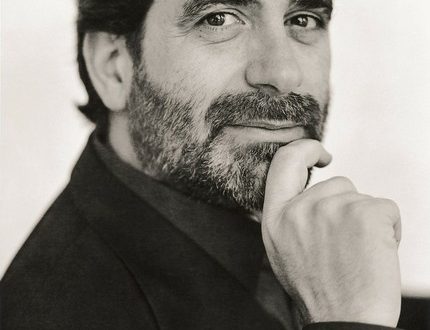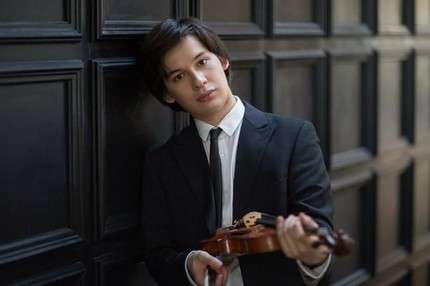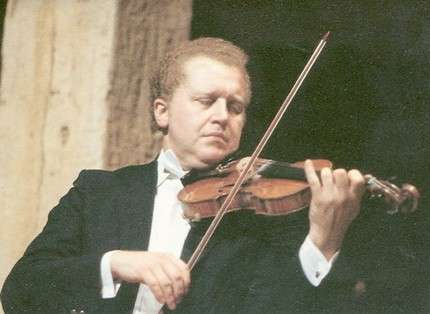
Mstislav Leopoldovich Rostropovich (Mstislav Rostropovich) |
Mstislav Rostropovich

People’s Artist of the USSR (1966), winner of the Stalin (1951) and Lenin (1964) Prizes of the USSR, the State Prize of the RSFSR (1991), the State Prize of the Russian Federation (1995). Known not only as a musician, but also as a public figure. The London Times called him the greatest living musician. His name is included in the “Forty Immortals” – honorary members of the French Academy of Arts. Member of the Academy of Sciences and Arts (USA), the Academy of Santa Cecilia (Rome), the Royal Academy of Music of England, the Royal Academy of Sweden, the Bavarian Academy of Fine Arts, winner of the Imperial Prize of the Japan Art Association and many other awards. He has been awarded an honorary doctorate from more than 50 universities in various countries. Honorary citizen of many cities of the world. Commander of the Orders of the Legion of Honor (France, 1981, 1987), Honorary Knight Commander of the Most Serene Order of the British Empire. Awarded with numerous state awards from 29 countries. In 1997 he was awarded the Great Russian Prize “Slava/Gloria”.
Born March 27, 1927 in Baku. Musical pedigree originates from Orenburg. Both grandfathers and parents are musicians. At the age of 15, he already taught at a music school, studying with M. Chulaki, who was evacuated to Orenburg during the war years. At the age of 16 he entered the Moscow Conservatory in the class of cellist Semyon Kozolupov. Rostropovich’s performing career began in 1945, when he received the first prize at the All-Union Competition of Musicians. International recognition came in 1950 after winning the competition. Hanus Vigan in Prague. After winning the All-Union competition, Slava Rostropovich, a student at the conservatory, was transferred from his second year to the fifth year. Then he taught at the Moscow Conservatory for 26 years, and for 7 years at the Leningrad Conservatory. His students are well-known performers, many of them later became professors of the world’s leading music academies: Sergei Roldygin, Iosif Feigelson, Natalia Shakhovskaya, David Geringas, Ivan Monighetti, Eleonora Testelets, Maris Villerush, Misha Maisky.
According to him, three composers, Prokofiev, Shostakovich and Britten, had a decisive influence on the formation of Rostropovich’s personality. His work developed in two directions – as a cellist (soloist and ensemble player) and as a conductor – opera and symphony. In fact, the entire repertoire of cello music sounded in his performance. He inspired many of the greatest composers of the 20th century. to create works especially for him. Shostakovich and Prokofiev, Britten and L. Bernstein, A. Dutilleux, V. Lyutoslavsky, K. Penderetsky, B. Tchaikovsky – in all, about 60 contemporary composers dedicated their compositions to Rostropovich. He performed for the first time 117 works for cello and gave 70 orchestral premieres. As a chamber musician, he performed in an ensemble with S. Richter, in a trio with E. Gilels and L. Kogan, as a pianist in an ensemble with G. Vishnevskaya.
He began his conducting career in 1967 at the Bolshoi Theater (he made his debut in P. Tchaikovsky’s Eugene Onegin, followed by productions of Semyon Kotko and Prokofiev’s War and Peace). However, life at home was not entirely smooth. He fell into disgrace and the result was a forced departure from the USSR in 1974. And in 1978, for human rights activities (in particular, for the patronage of A. Solzhenitsyn), he and his wife G. Vishnevskaya were deprived of Soviet citizenship. In 1990, M. Gorbachev issued a decree on the annulment of the Resolutions of the Presidium of the Supreme Council on the deprivation of their citizenship and on the restoration of the removed honorary titles. Many countries offered Rostropovich to take their citizenship, but he refused, and does not have any citizenship.
In San Francisco he performed (as a conductor) The Queen of Spades, in Monte Carlo The Tsar’s Bride. Participated in world premieres of such operas as Life with an Idiot (1992, Amsterdam) and Gesualdo (1995, Vienna) by A. Schnittke, Lolita R. Shchedrina (at the Stockholm Opera). This was followed by performances of Shostakovich’s Lady Macbeth of the Mtsensk District (in the first edition) in Munich, Paris, Madrid, Buenos Aires, Aldborough, Moscow and other cities. After returning to Russia, he conducted Khovanshchina as revised by Shostakovich (1996, Moscow, Bolshoi Theatre). With the French Radio Orchestra in Paris, he recorded the operas War and Peace, Eugene Onegin, Boris Godunov, Lady Macbeth of the Mtsensk District.
From 1977 to 1994 he was Principal Conductor of the National Symphony Orchestra in Washington, D.C., which under his direction became one of the best orchestras in America. He is invited by the most famous orchestras of the world – Great Britain, France, Germany, Austria, USA, Japan and other countries.
Organizer of his own festivals, one of which is dedicated to the music of the 20th century. The other is the cello festival in the city of Beauvais (France). Festivals in Chicago were dedicated to Shostakovich, Prokofiev, Britten. Many Rostropovich festivals have taken place in London. One of them, dedicated to Shostakovich, lasted several months (all 15 symphonies by Shostakovich with the London Symphony Orchestra). At the New York Festival, the music of composers who dedicated their works to him was performed. He took part in the festival “Days of Benjamin Britten in St. Petersburg” on the occasion of the 90th anniversary of Britten’s birth. On his initiative, the Pablo Casals Cello Competition in Frankfurt is being revived.
Opens music schools, conducts master classes. Since 2004 he has been the head of the School of Higher Musical Excellence in Valencia (Spain). Since 1998, under his auspices, the Masterprise International Composition Competition has been held, which is a collaboration between the BBC, the London Symphony Orchestra and AMI Records. The competition is conceived as a catalyst for a closer connection between serious music lovers and contemporary composers.
Played thousands of concerts in concert halls, factories, clubs and royal residences (at Windsor Palace, a concert in honor of the 65th anniversary of Queen Sophia of Spain, etc.).
Impeccable technical skill, beauty of sound, artistry, stylistic culture, dramatic accuracy, contagious emotionality, inspiration – there are no words to fully appreciate the individual and bright performing nature of the musician. “Everything I play, I love to faint,” he says.
He is also known for his charitable activities: he is the president of the Vishnevskaya-Rostropovich Charitable Foundation, which provides assistance to children’s medical institutions in the Russian Federation. In 2000, the foundation began to conduct a program for children’s vaccination in Russia. The President of the Fund for Assistance to Gifted Students of Musical Universities bearing his name, founded the Fund for Assistance to Young Musicians in Germany, a scholarship fund for talented children in Russia.
The facts of his speech in 1989 at the Berlin Wall, as well as his arrival in Moscow in August 1991, when he joined the defenders of the Russian White House, were widely known. He has received several awards for his human rights efforts, including the annual Human Rights League Award (1974). “No one will ever succeed in quarreling me with Russia, no matter how much dirt is poured on my head,” he said. One of the first to support the idea of holding the Sakharov International Arts Festival in Nizhny Novgorod, he was a guest of the II and a participant of the IV festival.
Rostropovich’s personality and activities are unique. As they rightly write, “with his magical musical talent and fantastic social temperament, he embraced the entire civilized world, creating a new circle of “blood circulation” of culture and connections between people.” So, the US National Recording Academy in February 2003 awarded him a Grammy Music Award “for an extraordinary career as a cellist and conductor, for a life in recordings.” He is called “Gagarin’s cello” and “Maestro Slava”.
Walida Kelle
- Rostropovich Festival →





